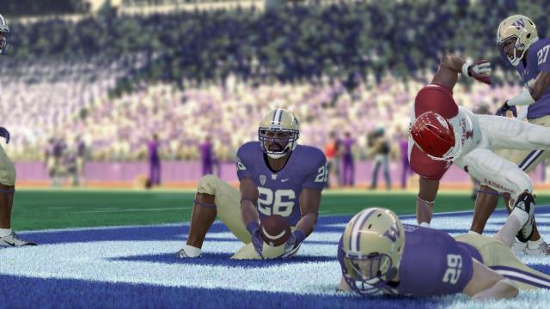Early June Update on Developments in the Player Likeness Lawsuit

The hearing to determine whether the player likeness lawsuit against the NCAA, CLC, and EA will become class action is now scheduled for June 20. In preparation for that major turning point a few pieces of news relating to the case have emerged.
What could make it difficult for the case to be certified as class action is that each individual athlete values their worth differently. Imagine the variances in Heisman candidates, a starting player from a premier program, a starter from a lower-tier program, a backup on a high profile team, and so on who will all feel they are deserving of something different. This is evidenced by two depositions that are now profiled from former Alabama wide receiver Tyrone Prothro and UConn basketball guard Tate George and will support the attempts by the defendants to prevent this from becoming a class action case which would be a huge win for them.
George’s and Prothro’s statements, the defendants’ lawyers wrote Thursday, show that there would be differences not only in the potential monetary claims that various potential plaintiffs would have in the case, but also that there would be differences in the claims of the named plaintiffs – who had varying degrees of prominence and played in different eras.
The NCAA of course vehemently opposes class action certification and filed arguments stating that student-athletes voluntarily choose to play on broadcast TV and that choice is made without the legal need for a license for their appearance. They claim there is no evidence NCAA rules or forms are used to prevent former student-athletes from selling their name, image or likeness rights after graduation and that the plaintiff’s claim flies in the face of the First Amendment, publicity, and Copyright law.
Earlier/Summary Below
The player likeness lawsuit against the NCAA, CLC, and Electronic Arts is the culmination of two high profile filings that were combined as led by Sam Keller and Ed O’Bannon (and O’Bannon now heads it up). It alleges improper use of player likeness through various forms of merchandise and media including video games in which the parties in question conspired to avoid paying players for their rights. Some interesting details and claims regarding the case at hand were revealed when EA was reentered as a defendant after initially being dismissed.
EA originally won a previous case regarding player likeness with the courts ruling video games are artistic works rather than commercial speech and therefore protected by the First Amendment. The Supreme Court in 2011 established forms of media, producing expressive works of art, are not subject to judgments based on incorporating someone’s name or likeness. That dismissed case however, involving Ryan Hart, has resurfaced after an appeals court reversed a decision based on that argument.
Recent uncovered emails have shown that NCAA representatives were well aware that players in games were based off real-life players. At one point the NCAA and EA had nearly reached an agreement to have actual player names included in the products. The EA Locker / Roster Share feature was a fallback option. With momentum clearly on the plantiffs’ side NCAA reps have begun to publicly express concern over the future of collegiate sports. A former EA Sports producer admitted players in NCAA games were based off real athletes. The discovery of Tim Tebow’s name being in NCAA Football 10 could throw another wrench into EA’s series of arguments.
This consolidated case in California looks as though it will be going to trial and ultimately be the determining factor of how the NCAA proceeds in the future handling broadcasting rights, merchandising, and video games. Should a negative result come down, which one analyst has pegged as being a potential loss of $1 billion for EA, it would likely not just end the NCAA Football series but also with it any realistic possibility of college sports games being made in the future. The NCAA is currently seeking to block classification as class action. The trial now is slated to begin June 2014. Appeals following a decision could extend the fight through 2020.
